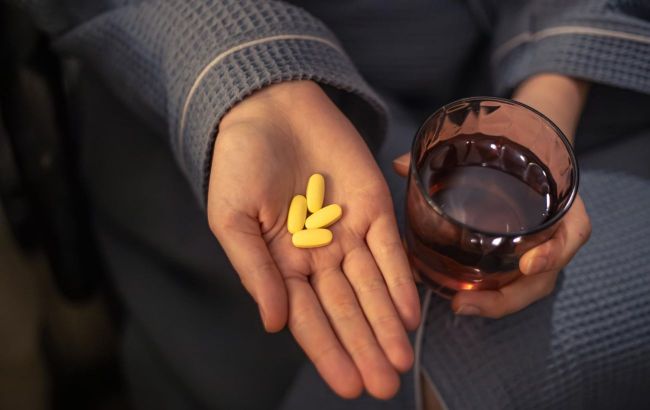Vitamin D overdose: 6 main signs to look out for
 Photo: Symptoms of vitamin D overdose (Freepik)
Photo: Symptoms of vitamin D overdose (Freepik)
Excessive doses of vitamin D can cause serious health issues, ranging from nausea to dangerous increases in calcium levels. Overdose often occurs due to uncontrolled supplement intake, so it's important to know the safe limits, reports Health.
Why is an overdose harmful?
The medical term for vitamin D poisoning is hypervitaminosis D. This condition occurs when the body accumulates excessive amounts of vitamin D, leading to dangerously high calcium levels (hypercalcemia).
According to StatPearls, vitamin D is essential for strong bones and muscles; however, excessive intake can be harmful. Elevated calcium in the blood may damage soft tissues, bones, kidneys, and arteries.
The body naturally regulates vitamin D production from sunlight, and most foods don't provide enough. Toxicity almost always occurs from excessive intake of vitamin D supplements.
Safe vitamin D intake
The US National Institutes of Health (NIH) set the tolerable upper intake level at 4,000 IU (100 micrograms) per day, the highest daily dose unlikely to cause side effects.
Vitamin D toxicity can occur with long-term daily intake above 10,000 IU.
Symptoms of overdose
Symptoms may develop over months. Early signs often resemble stomach issues, such as nausea, vomiting, and constipation.
Over time, additional symptoms may appear: fatigue, dehydration, confusion, muscle weakness, and bone pain. Vitamin D toxicity can also cause kidney stones or kidney damage.
The six most common signs of vitamin D poisoning include:
- Nausea and vomiting
- Loss of appetite
- Constipation
- Excessive thirst and frequent urination
- Weakness or fatigue
- Bone pain
Serious complications may include:
- Kidney damage or stones
- Irregular heart rhythms (arrhythmias)
- Severe dehydration
- Bone pain
Why it happens
Vitamin D comes from food, supplements, or sunlight:
- Sunlight: the body produces vitamin D naturally, controlling how much is made, so sun exposure does not cause toxicity
- Food: contains relatively small amounts of vitamin D
- Supplements: taking very high daily doses can raise blood levels to dangerous levels
You may be interested in:
- 5 main signs of vitamin B12 deficiency
- Daily ways to increase vitamin intake
- Three supplements to take with magnesium for better sleep
This material is for informational purposes only and should not be used for medical diagnosis or self-treatment. Our goal is to provide readers with accurate information about symptoms, causes, and methods of detecting diseases. RBС-Ukraine is not responsible for any diagnoses that readers may make based on materials from the resource. We do not recommend self-treatment and advise consulting a doctor in case of any health concerns.

